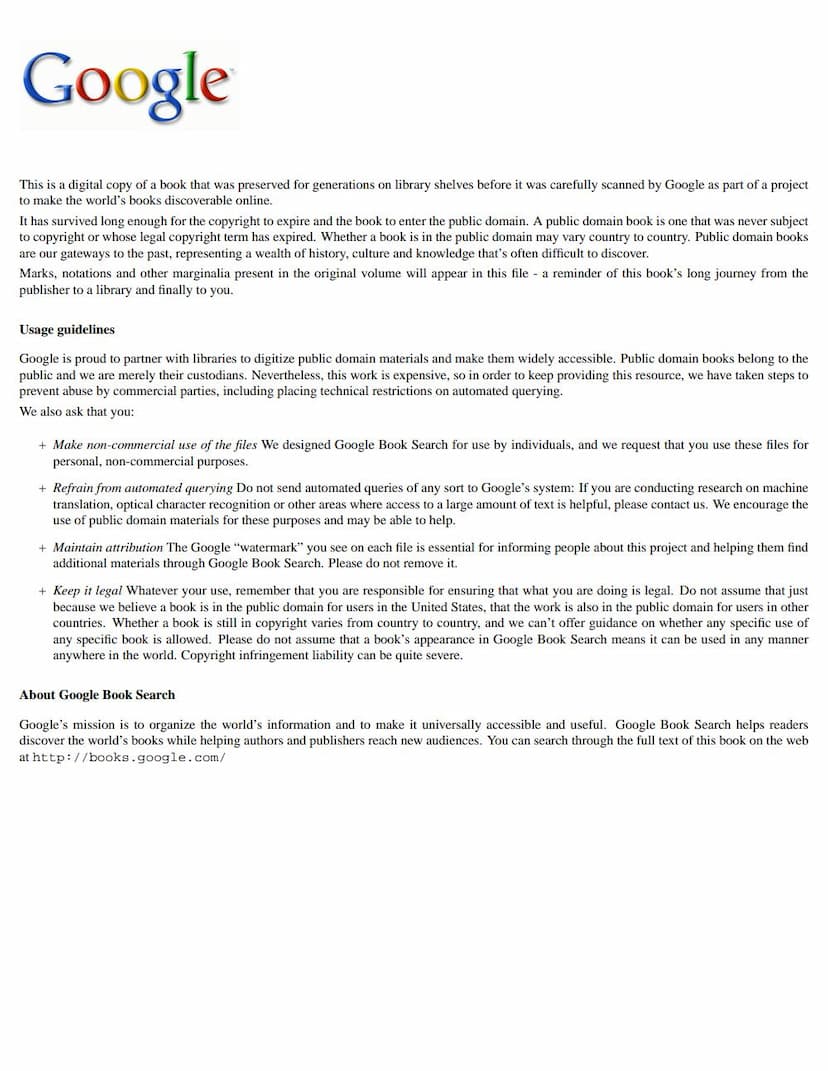Text Of Confucianism Part 01
Added to library: September 2, 2025

Summary
This text is the first volume of a series titled "The Texts of Confucianism," translated by James Legge and published by Oxford at the Clarendon Press in 1879. It is part of "The Sacred Books of the East" series, edited by F. Max Müller.
The volume contains translations of several foundational Jain texts:
-
The Shů King (Book of Historical Documents):
- Legge provides extensive introductions to the Shů, discussing its nature, history, the credibility of its records, and Chinese chronology as it relates to the Shů.
- He traces the history of the Shů from its existence before Confucius, its compilation, the destruction of classical literature by the emperor of Khin, and its subsequent recovery.
- The translation itself covers various "Books" within the Shů, organized by historical periods:
- Part I: The Book of Thang (The Canon of Yâo)
- Part II: The Books of Yü (The Canon of Shun, The Counsels of the Great Yü, The Counsels of Kao-yâo, The Yi and Ki)
- Part III: The Books of Hsia (The Tribute of Yü, The Speech at Kan, The Songs of the Five Sons, The Punitive Expedition of Yin)
- Part IV: The Books of Shang (The Speech of Thang, The Announcement of Kung-hui, The Announcement of Thang, The Instructions of I, The Thai Kia, The Common Possession of Pure Virtue, The Pan-kăng, The Charge to Yüeh, The Day of the Supplementary Sacrifice to Kao Sung, The Chief of the West's Conquest of Li, The Count of Wei)
- Part V: The Books of Kâu (The Great Declaration, The Speech at Ma, The Successful Completion of the War, The Great Plan, The Hounds of Lü, The Metal-bound Coffer, The Great Announcement, The Charge to the Count of Wei, The Announcement to the Prince of Khang, The Announcement about Drunkenness, The Timber of the Rottlera, The Announcement of the Duke of Shao, The Announcement concerning Lo, The Numerous Officers, Against Luxurious Ease, The Prince Shih, The Charge to Kung of Bhai, The Numerous Regions, The Establishment of Government, The Officers of Kâu, The Kün-khăn, The Testamentary Charge, The Announcement of King Khang, The Charge to the Duke of Pi, The Kün-ya, The Charge to Khiung, The Marquis of Lü on Punishments, The Charge to the Marquis Wăn, The Speech at Pi, The Speech of the Marquis of Khin)
-
The Shih King (Book of Poetry):
- Legge introduces the Shih by discussing its name, contents, and the nature of its pieces.
- He addresses the historical debate about Confucius's role in compiling or editing the Shih, concluding that Confucius's main contribution was inspiring its study and preservation.
- He discusses the Shih's history from Confucius's time to the establishment of the current text, noting the existence of three different texts (La, Khi, Han) and the eventual dominance of Mao's text.
- The translation includes:
- Odes of the Temple and the Altar (Sacrificial Odes of Shang, Sacrificial Odes of Kâu, Praise Odes of Lü): These sections focus on religious views and practices, particularly ancestral worship and sacrifices.
- The Minor Odes of the Kingdom (Lessons from the States, Odes of Shâo and the South, Odes of Phei, Odes of Yung, Odes of Thang, Odes of Khin): These contain diverse themes, including social customs, moral reflections, and appeals to Heaven, often with an indirect religious dimension.
- The Major Odes of the Kingdom (Odes of Wăn Wang, Odes of Shăng Min, Odes of Mien, Odes of Yü, Odes of Kân Zăng, Odes of Hsiao Min, Odes of Hsiao Yuan, Odes of Hsiao Pan, Odes of Kǎng Min, Odes of Hsiao Pei): These are generally more elevated in tone and often directly address or allude to the actions and favor of Heaven or God, as well as the efficacy of sacrifices and the importance of virtue.
-
The Hsiâo King (Classic of Filial Piety):
- Legge provides introductions to the Hsiâo King, discussing its name, its early existence, its contents, and its authorship, largely attributing it to the school of Confucius's disciple Zăng-zze.
- He details its recovery under the Han dynasty, the existence of different texts (old and modern), and the various commentaries and critical efforts to establish its authenticity and integrity.
- The translation covers the chapters of the Hsiao King, detailing filial piety in various social roles: the Son of Heaven, princes of states, high ministers, inferior officers, common people, in relation to the Three Powers (Heaven, Earth, Man), in government, the government of sages, an orderly description of acts of filial piety, and its relation to reproof, influence, service to the ruler, and mourning.
The volume is notable for its scholarly introductions, detailed historical context, and careful translation, aiming to present these key Confucian texts within their historical and religious framework. The discussion of the texts' origins, transmission, and interpretation reflects a deep engagement with classical Chinese scholarship.